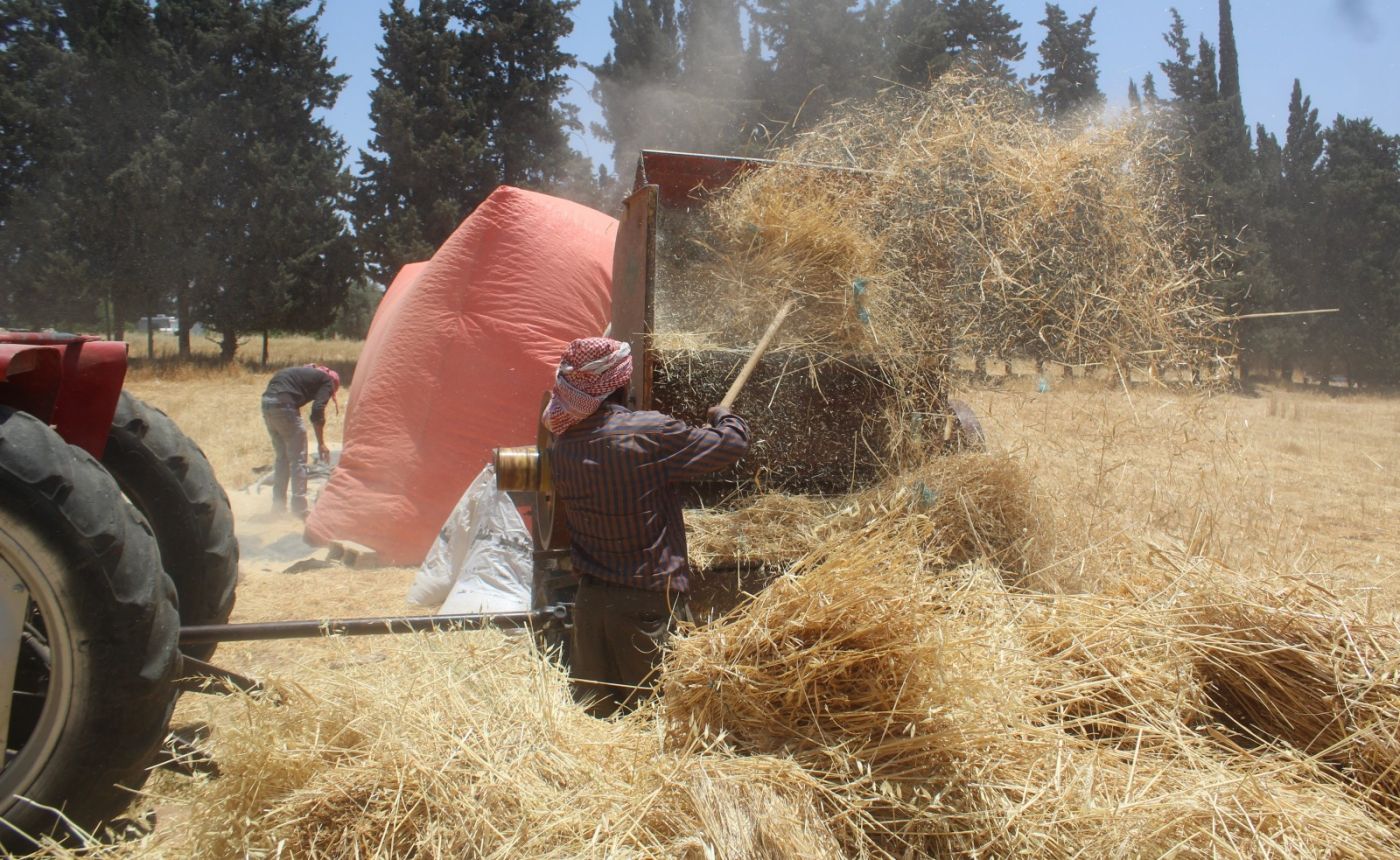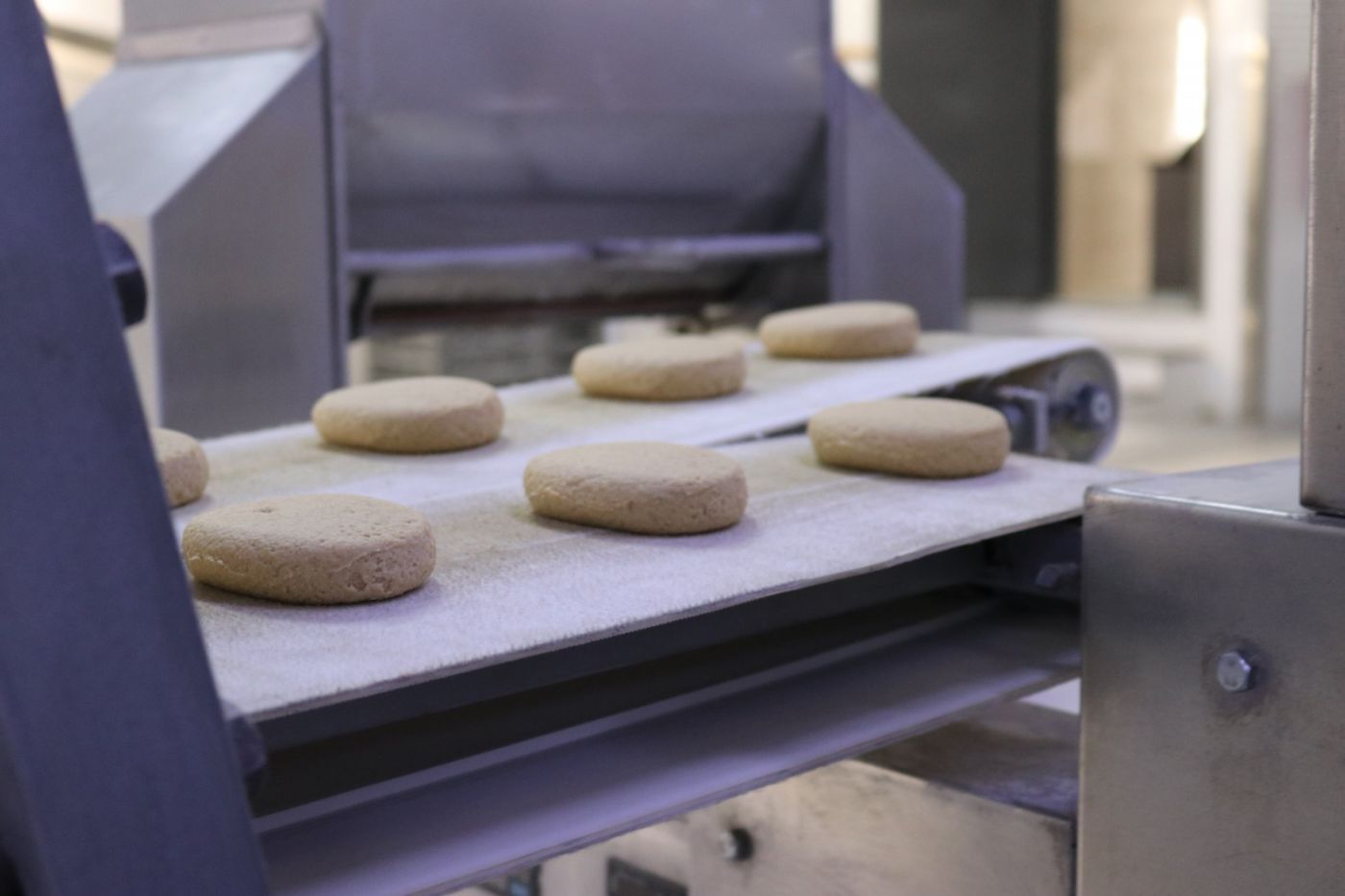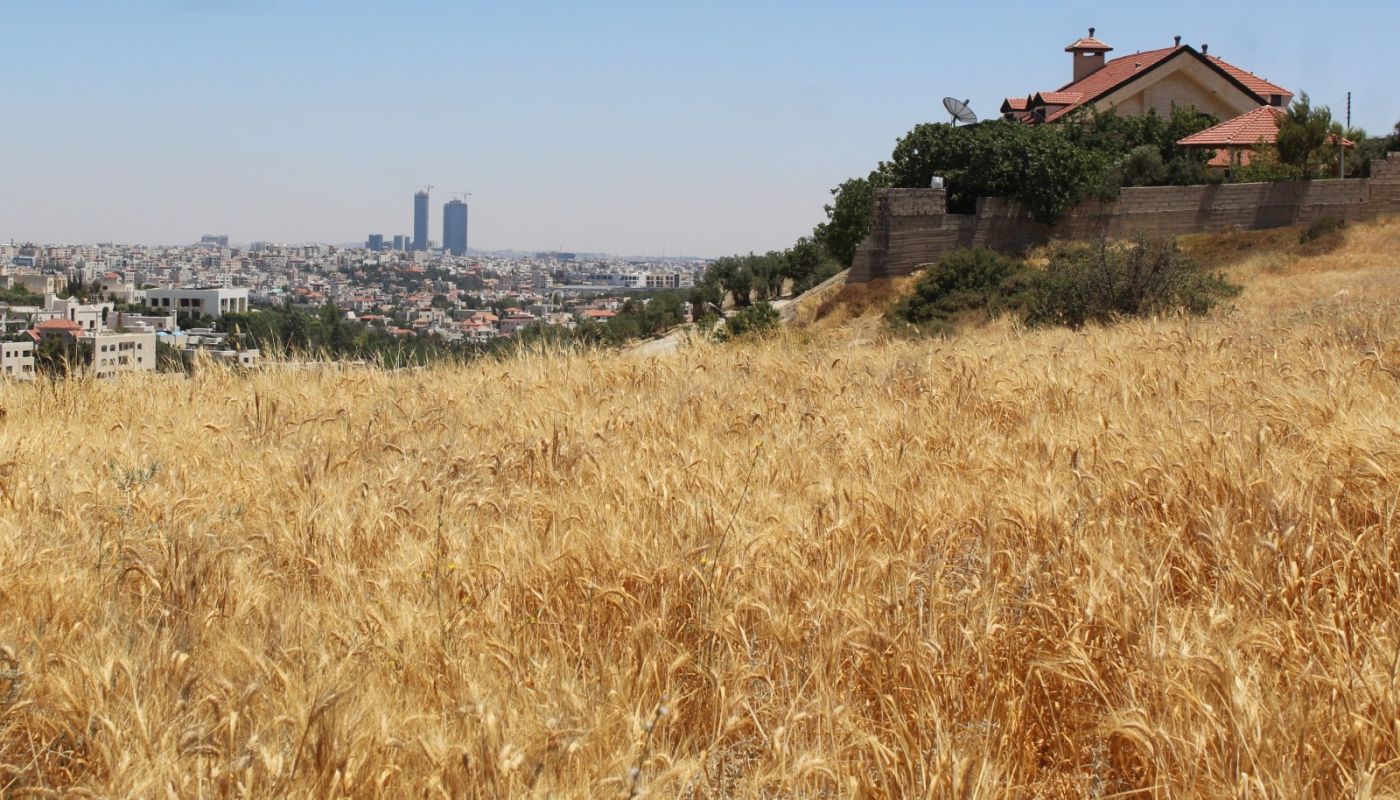Are You A Vanguard? Applications Now Open
Zikra for Popular Learning
This is your first of three free stories this month. Become a free or sustaining member to read unlimited articles, webinars and ebooks.
Become A MemberA collective of urban families in the Jordanian capital, Amman, are reclaiming their food sovereignty by cultivating native wheat varieties in empty urban plots.
At a time when the world is suffering from a food crisis caused by climate change and exacerbated by the Russian-Ukrainian war, this initiative aims to reduce Jordan’s import dependency for 97% of its food grains.
Founded in 2019 by Jordanians Lama Khatieb and Rabee Zureikat, the collective Zikra for Popular Learning and its Al Barakeh Wheat Project, have been working to put wheat back in the foreground of the local economy by rebuilding a sustainable relationship between land and society.
“A friend of mine once said, ‘For us as communities, if we stop growing grains, we will disintegrate,’” Khatieb says. The project, she explains, “aspires to bring local wheat to the fore, as food & economy, and restoring the ‘bakareh’” – Arabic for ‘blessing’ – “as a compass for thinking, building and working, to liberate food and rebuild the relationship with the land and society.”
The project allows veteran wheat growers to share their knowledge with local families, teaching them how to plant, harvest and make their own bread, reviving a rich tradition of communal farming. Since its launch, membership has grown to 165 families and 3 schools, cultivating over 70 dunams (17.3 acres) around the capital.

(Photo by Zikra for Popular Learning)
According to Jordan’s ministry of agriculture, the country’s potential to feed its own population is high if it uses only 6 million of its 52 million dunams of land that are potentially suitable for agriculture. In fact, until the late 1960s, the country was 200% self-sufficient in wheat according to the project founders. The dense concrete jungle that is Amman was once the kingdom’s most suitable landscape for rainfed agriculture.
“Until the 1980s, Italy used to import wheat from Jordan to make pasta,” recalls Mahmoud Al-Aouran, Director-General of the Jordanian Farmers’ Union. But since then, the country lost most of its local wheat cultivation when foreign aid, urban development and cheap American wheat flooded its markets while international financial institutions restricted the Jordanian government from subsidizing their own wheat. Today, loaves of bread made from local wheat cost more than imported ones.
By connecting small-scale local farmers directly with bakeries and restaurants, Al Barakeh is transforming this economic model.
The initiative gets permission from landowners to cultivate their empty plots of land. Before every season, Zureikat meets with the members to explain about the cycle of wheat farming and the idea of the project. “Sometimes, however, we are surprised to see the landowners have started building on a plot of land we planted, and the crop is lost,” Khatieb says.
Veteran farmers and experts accompany and supervise the members throughout all the process from plowing to sowing, to harvesting and each family gets a 50kg bag of wheat that they can use as they see fit.
Initially, members were hearing about the initiative on social media. Today, Al Barakeh sees growth by word of mouth too. “The initiative is reshaping people’s relation with their land and with their food, and it’s bringing people from different backgrounds together,” says Zureikat.
Membership remains limited to those who can afford the JOD 125 ($175) annual fee to cover the cost of equipment for sowing and harvesting. Now, with the returns of selling their wheat to cooperating stores and bakeries, the project organizers intend to open a mill in Amman to be able to produce their own flour.

(Photo by Zikra for Popular Learning)
Not only do farmers receive better prices through the project, but local wheat is grown organically without using any chemicals. That makes it a less toxic choice as compared to American wheat which is commonly desiccated with glyphosate-based pesticides
“I was unable to eat wheat and flour before,” says 39-year-old Taroub Malhas, one of the members in the initiative. She has been suffering from diabetes since her early 30s and could not eat brown or white bread made from imported wheat. “We used to eat toxins in our food every day!”
This changed since she decided to join Al Barakeh and start planting her own wheat with her two daughters, aged 11 and 5. Her whole lifestyle transformed when she could consume the organic bread produced from the wheat she plants. Her family members began to pay attention to the food they were eating and buy locally made produce, especially when they saw that Malhas no longer needed her medicine.
“I always say I only eat my wheat and my bread,” Malhas says proudly.
Malhas believes that learning to cultivate crops is important to teach the younger generation, including her two daughters, the concept of patience and hard work.
She describes the joy that overwhelmed her two daughters the first time they ate sandwiches made of wheat they planted and harvested. “They kept saying this food is made from our wheat. They even started waking up willingly at 6 a.m. to harvest when before they would resist waking up for school.”
Laila Abdulmajeed, who works at a school on programs to enhance community interaction and education, agrees. She saw Al Barakeh as an opportunity for direct learning and presented the idea to her high school students.
Five of them joined the project and Abdulmajeed is now using practical education to teach students about food, agriculture and the relationship between land and people. The biggest challenge however, is the coincidence of the harvest season with school exams which made her students volunteer to harvest the remaining plots of land after the exams. “This experience pushed them to start thinking about where wheat comes from and discuss the need for its local cultivation,” she says.
For the 40-year-old educator, it is crucial for people to see the relationship that binds them with the land they live on, and the role they need to play for it to survive at a time when climate change, and geopolitical realities are threatening food security across the globe.

(Photo by Zikra for Popular Learning)
Omar Al-Awdat, the head of the Jordanian Society for the Protection of Wildlife, is less optimistic about Amman’s chances at achieving food sovereignty. Because of climate change, he says, the reality is that agricultural areas in Jordan are no longer suitable to grow wheat, especially with the reduced amount of rainfall in the Kingdom which prompted many to plant olive trees instead of wheat.
“Many lands need to be reclaimed in order to be made suitable for agriculture, especially that residential buildings were built on large areas of agricultural land, and the most expensive real estate is in fact the best for wheat cultivation,” he explains.
Al-Awdat does not believe self-sufficiency can be achieved simply with such initiatives due to the water shortages. “This is why we have always encouraged farmers to plant certain varieties of wheat that can withstand harsh conditions,” he says.
Just before the pandemic, the country imported 1.2m tons of wheat, enough for 18 months and produced a mere 25,000 tons, barely enough for one week’s use.
The challenges don’t end there. Al Barakeh still struggles to keep the lands they are cultivating from being lost to real estate development or from official neglect.
“The Greater Amman Municipality once threw election banners and trash over our agricultural lands causing us to lose some of the crops,” Khatieb recalls.
Since the start of the Russian-Ukrainian war, Jordan’s King Abdullah II has emphasized the need to enhance food security and help protect citizens from the global rise in food prices by paying more attention to the agricultural sector, and expanding investment in it.
Al-Aouran, who leads the Jordanian Farmers Union, also considers it necessary to experiment with the cultivation of one million dunams of wheat by developing an organized strategy and monitoring the results, especially with the use of appropriate fertilizers.
For him, clear and organized solutions for land and water use are more needed than ever to be able to better support initiatives such as Al Barakeh and move closer towards achieving food sovereignty.
“Research centers must conduct studies and design plans in order to obtain varieties of wheat suitable for climatic changes and low rainfall, so that farmers can use them,” he suggests.
This story is published in collaboration with Egab. This article is part of The Bottom Line, a series exploring scalable solutions for problems related to affordability, inclusive economic growth and access to capital. Click here to subscribe to our Bottom Line newsletter. The Bottom Line is made possible with support from Citi.
Shefa'a Qudah is an independent journalist specialized in human rights and freedoms and based in Jordan. She is particularly interested in storytelling and in-depth reports. She has previously worked with the International Journalists Network, Raseef22, My Kali, Arab Reporters for Investigative Journalism, and others. She won awards for her human rights reports from Journalists for Human Rights and Tamkeen for Legal Aid.

20th Anniversary Solutions of the Year magazine